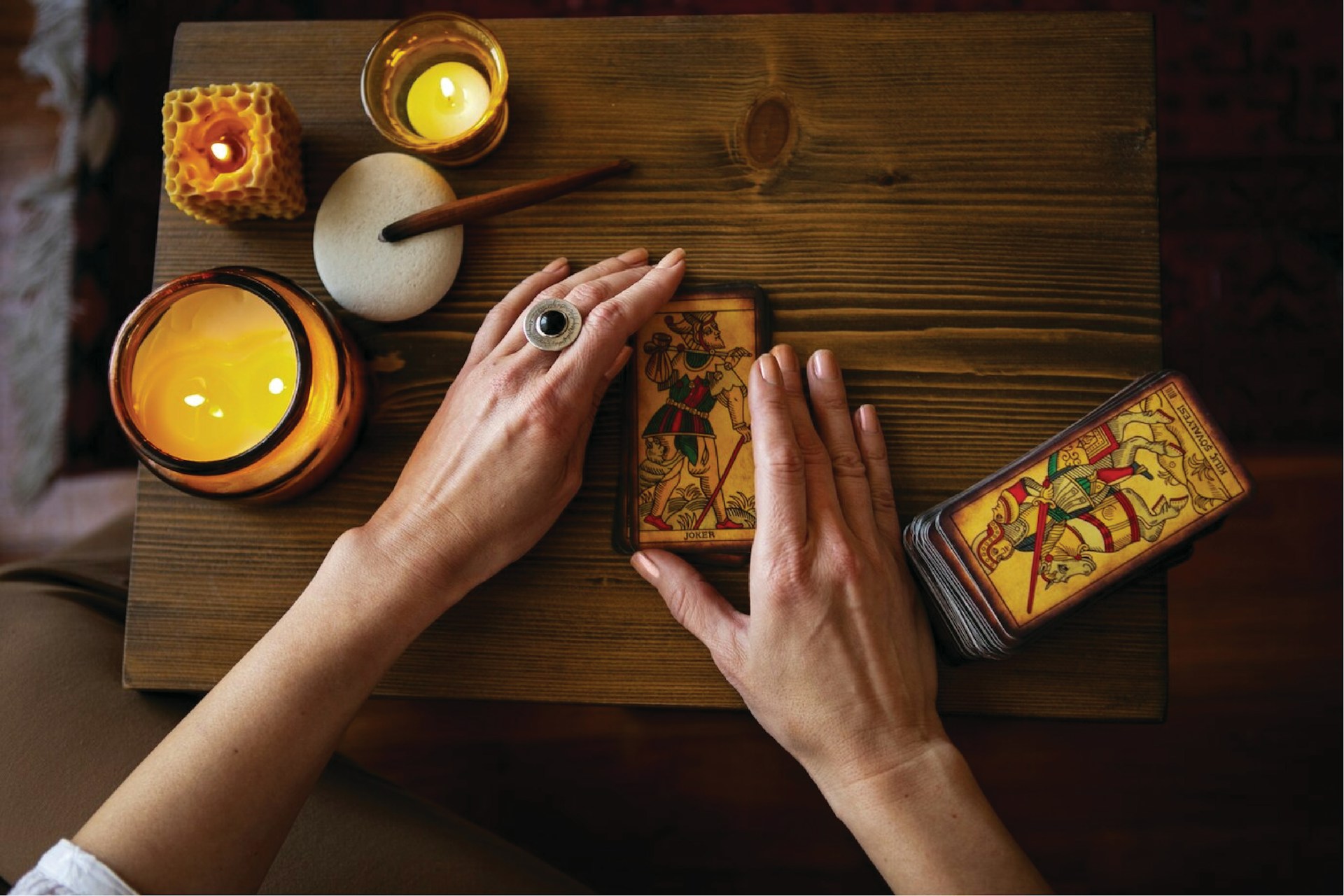Journey Into Reiki: Discover How It Elevates Your Spiritual Growth
 In today’s fast-paced world, many individuals find themselves seeking ways to deepen their spiritual connections and improve their overall well-being. Reiki, a Japanese technique that promotes healing and relaxation, has gained popularity as an effective method for achieving spiritual growth and balance.
In today’s fast-paced world, many individuals find themselves seeking ways to deepen their spiritual connections and improve their overall well-being. Reiki, a Japanese technique that promotes healing and relaxation, has gained popularity as an effective method for achieving spiritual growth and balance.
But what exactly can you expect from a Reiki session, and how can it elevate your spiritual journey? This blog post is designed to demystify Reiki, shedding light on its benefits and what you can anticipate when embarking on this path.
As you read on, you’ll discover insights into the history and principles of Reiki, the process of a typical session, and how it influences energy flow within the body. Additionally, we’ll explore the impact of Reiki on spiritual growth and provide practical tips to maximize your experience.
Whether you’re a newcomer to Reiki or someone seeking deeper understanding, this guide will equip you with the knowledge needed to enhance your spiritual path through healing sessions.
The Origins of Reiki
Understanding the Roots
Reiki, derived from the Japanese words “rei” (universal) and “ki” (life energy), is a practice that has been around for centuries.
Its origins can be traced back to Dr. Mikao Usui, who developed the technique in the early 20th century after experiencing spiritual enlightenment. Usui’s method was based on ancient healing practices, emphasizing the importance of channeling life energy through touch.
This practice spread rapidly across Japan before gaining global recognition. Today, Reiki is embraced by many as a holistic approach to healing and spiritual growth. Understanding its roots allows practitioners and recipients to appreciate the depth and richness of this timeless technique.
The Core Principles
At the heart of Reiki are its core principles, which guide both practitioners and recipients in their spiritual endeavors. These principles include living in the present moment, practicing gratitude, and fostering kindness and compassion.
By adhering to these principles, individuals can cultivate a sense of inner peace and enhance their spiritual journeys.
These guidelines not only support personal growth but also strengthen the connection between the practitioner and the recipient during sessions. Practicing Reiki with these principles in mind leads to more profound healing experiences and long-lasting benefits.
Reiki’s Global Reach
Since its inception, Reiki has transcended cultural boundaries and is now practiced worldwide. Its versatility and effectiveness have made it a sought-after method for those seeking alternative healing practices.
From hospitals to wellness centers, Reiki is increasingly acknowledged for its ability to complement conventional medical treatments.
Understanding the widespread adoption of Reiki highlights its relevance and effectiveness in promoting spiritual growth and healing across diverse populations. Its global reach signifies the universal appeal and adaptability of this powerful technique.
The Energy Flow in Reiki
What is Energy Flow?
Central to Reiki is the concept of energy flow, which refers to the movement of life energy throughout the body. When this energy flows freely, individuals experience physical, emotional, and spiritual well-being.
However, blockages in the flow of energy can lead to discomfort and imbalance, affecting one’s overall health.
Reiki practitioners believe that energy flow can be redirected and restored through hands-on techniques. By channeling life energy, Reiki helps remove blockages, encouraging the body to heal itself naturally and promote relaxation.
How Reiki Influences Energy Flow
During a Reiki session, practitioners use their hands to detect areas of the body where energy is stagnant or obstructed.
Through gentle touch or hovering hands above the body, they channel energy to these areas, facilitating balance and harmony. This process not only alleviates physical ailments but also fosters emotional and spiritual well-being.
Clients often report sensations of warmth, tingling, or deep relaxation during sessions, indicating shifts in their energy flow. These experiences underscore Reiki’s potential to transform negative energy into positive, restorative energy.
The Role of Chakras
Chakras, the energy centers within the body, play a pivotal role in Reiki. Each chakra is associated with specific physical, emotional, and spiritual aspects, and ensuring their alignment is crucial for overall well-being. Blocked or misaligned chakras can manifest as symptoms such as fatigue, anxiety, or restlessness.
Reiki aims to balance and align the chakras, allowing energy to flow freely. By focusing on these energy centers, practitioners help clients achieve a state of equilibrium, supporting both healing and spiritual growth.
Preparing for a Reiki Session
Setting Intentions
Before attending a Reiki session, setting intentions is vital for maximizing the experience. Reflect on what you hope to achieve, whether it’s stress relief, emotional healing, or spiritual growth. Clarifying your intentions helps guide the session and enhances its effectiveness.
Discuss your goals with the practitioner beforehand, allowing them to tailor the session to your specific needs. This collaboration ensures a personalized experience that aligns with your spiritual aspirations.
Choosing the Right Practitioner
Selecting a qualified practitioner is crucial for a successful Reiki experience. Seek out professionals trained in authentic Reiki methods, with certifications and testimonials to verify their expertise. A skilled practitioner will create a safe and supportive environment, fostering trust and openness.
Establishing a rapport with your practitioner is essential for maximizing the benefits of Reiki. Their ability to connect with you on a spiritual level enhances the overall experience, promoting healing and relaxation.
What to Expect During a Session
A typical Reiki session lasts between 60 to 90 minutes, during which you’ll lie fully clothed on a comfortable table.
The practitioner will perform a series of hand placements or gentle touches, directing energy to different areas of your body. You may experience sensations such as warmth, tingling, or deep relaxation as the session progresses.
It’s essential to remain open and receptive to the process, allowing the energy to flow naturally. Relaxing and maintaining an open mind ensures you receive the full benefits of the session, promoting healing and spiritual growth.
The Benefits of Reiki
Enhancing Relaxation
One of the most notable benefits of Reiki is its ability to induce deep relaxation. By releasing tension and reducing stress, Reiki creates a serene environment conducive to healing. Clients often leave sessions feeling refreshed, rejuvenated, and centered.
Regular Reiki sessions can significantly improve overall well-being, helping individuals manage daily stressors more effectively. This newfound sense of calm enhances their quality of life and supports growth.
Supporting Emotional Healing
Reiki is a powerful tool for emotional healing, offering relief from anxiety, depression, and emotional trauma. By addressing the root causes of emotional distress, Reiki promotes self-awareness and inner peace, allowing individuals to process and release negative emotions.
Over time, Reiki fosters emotional resilience, equipping clients with the tools to face life’s challenges with grace and confidence. This emotional transformation is a key aspect of growth and personal development.
Boosting Spiritual Growth
Through its emphasis on flow and balance, Reiki naturally supports spiritual growth. By aligning chakras and fostering inner harmony, Reiki helps individuals deepen their connection to their spiritual selves and the universe.
This profound sense of interconnectedness inspires personal transformation and growth, empowering individuals to live authentically and purposefully. Reiki’s impact on spiritual development is a testament to its ability to elevate one’s spiritual journey.
Maximizing Your Reiki Experience
Incorporating Meditation
Combining Reiki with meditation can enhance the benefits of both practices. Meditation helps quiet the mind, facilitating deeper relaxation and allowing energy to flow more freely. By incorporating meditation into your routine, you can extend the effects of Reiki sessions and support ongoing spiritual growth.
Consider practicing mindfulness techniques, such as deep breathing or visualization, to enhance your Reiki experience. These complementary practices create a harmonious synergy, amplifying the benefits of both Reiki and meditation.
Practicing Self-Reiki
Self-Reiki is an empowering way to continue your growth between sessions. By learning to channel energy independently, you can address personal imbalances and maintain a sense of well-being.
Practicing self-Reiki enables you to take control of your healing journey and foster a deeper understanding of energy flow.
To begin, establish a regular self-Reiki practice, dedicating time each day to connect with your energy. Over time, you’ll develop greater self-awareness and spiritual insight, enhancing your overall experience with Reiki.
Joining a Reiki Community
Connecting with like-minded individuals in a Reiki community offers valuable support and encouragement. Whether through workshops, online forums, or local gatherings, engaging with others who share your interest in Reiki can deepen your understanding and appreciation of the practice.
Participating in a community fosters camaraderie and provides opportunities for learning and growth. By sharing experiences and insights, you’ll enhance your spiritual journey and reinforce your commitment to personal development.
Conclusion
Reiki is a versatile and powerful tool for promoting relaxation, emotional healing, and growth. By understanding the principles and benefits of Reiki, you can make informed decisions about incorporating it into your spiritual practice.
Whether you’re seeking stress relief, emotional healing, or personal transformation, Reiki offers a holistic approach to achieving your goals.
Remember to set intentions, choose a qualified practitioner, and explore complementary practices like meditation to maximize your experience. By investing in your well-being and growth, you’re taking a significant step toward living a more balanced, fulfilling life.
For those interested in exploring further, consider visiting this website to discover additional resources and connect with Reiki practitioners in your area. Embarking on a Reiki journey is an opportunity to nurture your mind, body, and spirit, ultimately elevating your spiritual path.





